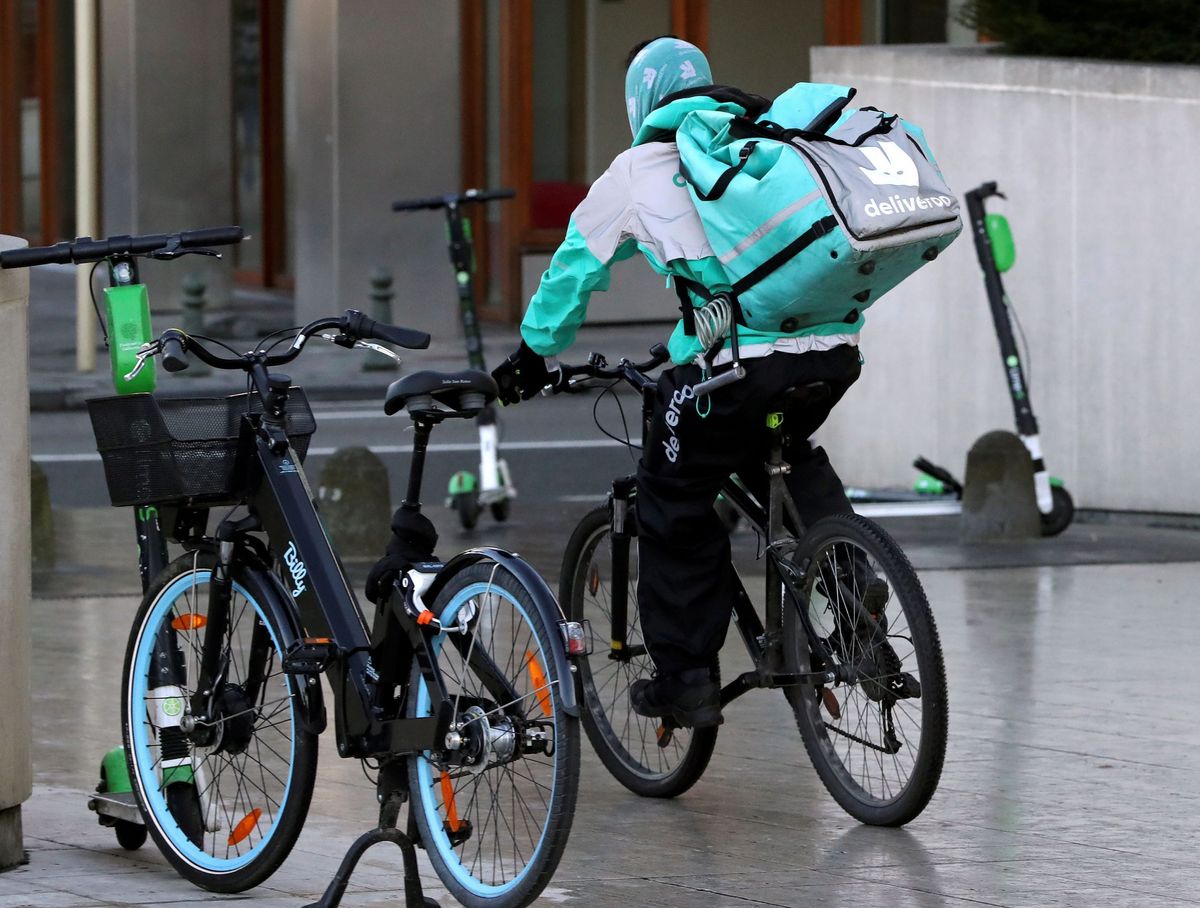Everything you need to know about Deliveroo’s upcoming IPO

A few minutes every morning is all you need.
Stay up to date on the world's Headlines and Human Stories. It's fun, it's factual, it's fluff-free.
The highly anticipated listing could set the UK market up for its best ever first quarter since 2006, when it raised £6.4 billion (US$8.9 billion).
On Monday, March 8, the United Kingdom-based food delivery service Deliveroo announced its plans to file for an initial public offering (IPO) in London after seeing major growth over the course of the pandemic. Deliveroo also published its recent financials in an accompanying update.
The highly anticipated listing could set the UK market up for its best ever first quarter since 2006, when it raised £6.4 billion (US$8.9 billion).
The British company is expected to be valued at more than £5 billion (US$7 billion) based on a round of private investments it completed in January of this year. Though Deliveroo still posted a £223.7 million (US$309 million) loss for 2020, it narrowed that loss substantially from 2019, when it posted a loss of £317 million (US$438 million).
The company also reported a 64% growth in total money spent in Deliveroo transactions, also called gross transaction volume, bringing it to £4.1 billion (US$5.67 billion). Deliveroo claims to serve around six million customers and deliver for more than 115 restaurants and grocery stores.
“Today, Deliveroo is so much bigger than I ever would have thought possible,” said chief executive officer and founder Will Shu. “We are building delivery-only kitchens, delivering groceries, building tools for restaurants to take them into the digital age – things I never contemplated when we launched.”
Shu has previously estimated that the pandemic accelerated the public adoption of food delivery services by almost three years, helping the company more effectively tap into the £1.2 trillion (US$1.7 trillion) grocery and dining market that it has deemed “highly under-penetrated.”
Gig economy turmoil
The gig economy has seen some turmoil in recent years surrounding the subject of worker status. In most cases, such as that with Deliveroo as well as with other industry leaders like Uber, workers are classified as independent contractors, so that the companies providing oversight aren’t required to adhere to worker protection regulations. This means that gig-economy workers often aren’t protected under minimum wage regulations and don’t receive paid time off or sick leave.
A Supreme Court ruling last month in the UK said that drivers for Uber are not self-employed, but should be considered “workers” for the ride-hailing company and are thus entitled to workers rights in the UK. The ruling lays fundamental groundwork for similar rulings in the future.
The top court in France issued a similar ruling in March 2020.
“When connecting to the Uber digital platform, a relationship of subordination is established between the driver and the company,” a statement from the court read, “Hence, the driver does not provide services as a self-employed person, but as an employee.”
But there isn’t yet an international consensus on the status of gig-economy workers.
Last November, voters in the state of California voted in favor of proposition 22, which exempts companies like Uber and Lyft from having to classify workers as employees, instead allowing them to be classified as independent contractors.
The controversial ballot measure was the most costly in California’s history and was backed by more than US$200 million from a number of affected gig-economy companies, including Uber, Lyft and DoorDash.
The decision made it possible for these companies to sidestep a piece of legislation put into effect at the beginning of 2020 called Assembly Bill 5, which was designed in large part to ensure the rights of those who may not have previously had them.
What this means for Deliveroo
Though the UK ruling doesn’t yet affect Deliveroo, the British company could eventually see the tide turn on its home turf.
Deliveroo currently has around 100,000 riders in its twelve markets, which include several countries throughout Europe as well as Australia, Hong Kong, Singapore and the United Arab Emirates, among others.
The company does not currently operate in the United States.
In the listing documents filed by Deliveroo, the company acknowledged the risks in upcoming litigation surrounding the issues being discussed in the industry. The company revealed that it has £112 million (US$156 million) set aside to cover these costs, signaling a willingness to fight alongside other industry leaders on this issue.
Though the size and price of the upcoming offering is not yet known, Deliveroo has confirmed that it will sell new stocks, but existing holders will also sell shares.
The company is positioned to officially go public in April of this year.
Have a tip or story? Get in touch with our reporters at tips@themilsource.com




Comments ()